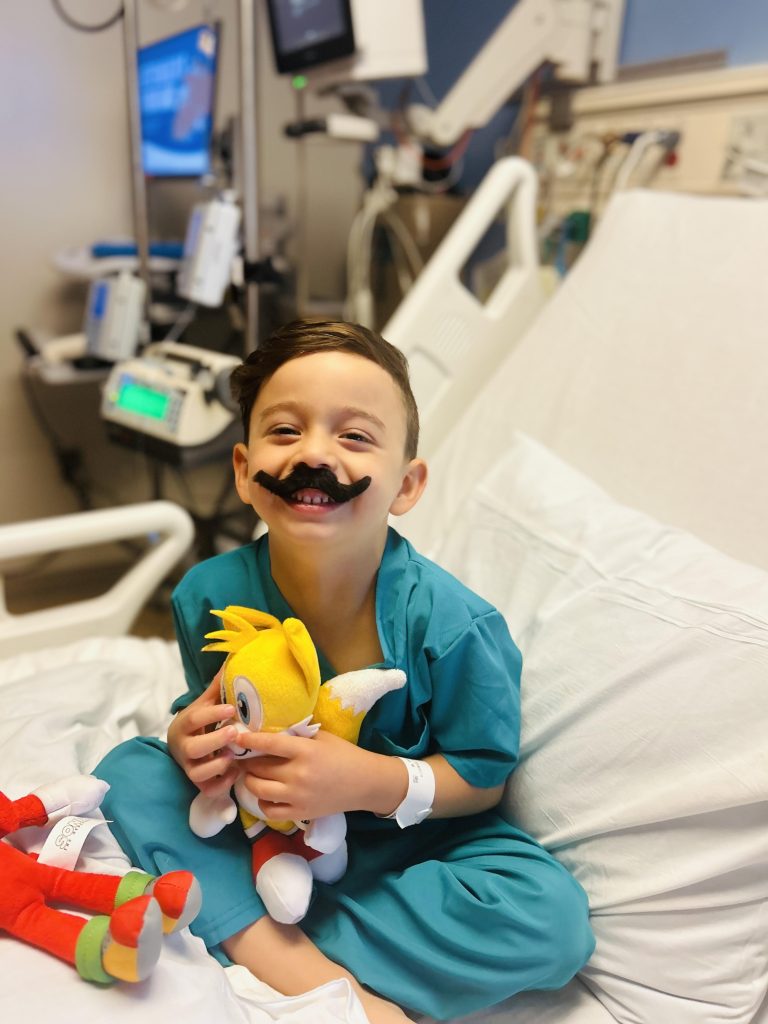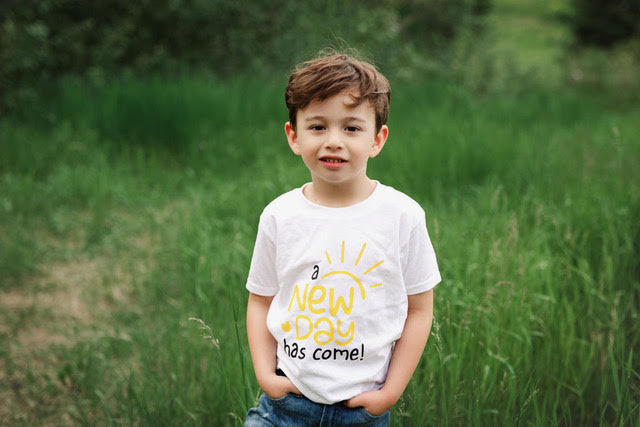U of A professor composes song using DNA sequence of Edmonton child’s rare condition

Posted February 12, 2025 3:12 pm.
Last Updated February 19, 2025 1:18 pm.
Andrea Fernandez still remembers the moment five years ago.
“You kinda freeze in time and you don’t know exactly what you’re doing,” she explained.
Shortly after her son Jakob Guziak’s birth, he was diagnosed with a rare condition that meant he had no natural immune system. Adenosine deaminase-deficient severe combined immunodeficiency (ADA-SCID), which is also known as bubble boy disease, is considered life-threatening.
“The hardest part was probably to be told that he will not survive his second birthday. I think that was the most heartbreaking thing ever.”
But after years of isolating Jakob from all viruses and bacteria as well as multiple injections a week, the five-year-old is essentially cured, thanks to gene therapy in the United States.

“Soon enough, he’s gonna be out of everything which means that he will be like you and I,” said Fernandez.
And with Jakob’s rare condition, both his mother and a professor at the University of Alberta are hoping to build awareness through music.
“The song itself is a very tender song, it expresses Andrea’s feelings about her son. But what I love about the lyrics that she wrote is that they could also be interpreted as the son speaking to his mother. The theme is sort of ‘Together we can fight this,’” explained Michael Frishkopf, a music professor at the U of A.

Frishkopf composed a song based on the ADA gene sequence, which is implicated in Jakob’s condition of SCID. Creating the melody proved complicated.
“More than 32,000 letter sequences, these letters represent the basis of the DNA sequence. And what do I do with 32,000, what do I do with this data,” said Frishkopf.
The lyrics — “I’ll conquer every mountain, I’ll give you moon and star” — were added by Jakob’s mom.
“He helps you heal, and I feel that this project has been helping me heal at many levels,” said Fernandez.
The singer is Dr. Olga Zaitseva-Herz, an ethnomusicologist.
Everyone involved is hoping to spread awareness of other rare diseases, just like Jakob’s condition.
“It’s a way of learning about something through expressive performance,” said Frishkopf.
Correction: A previous version of this article incorrectly suggested the music was based on Jakob’s individual DNA.








